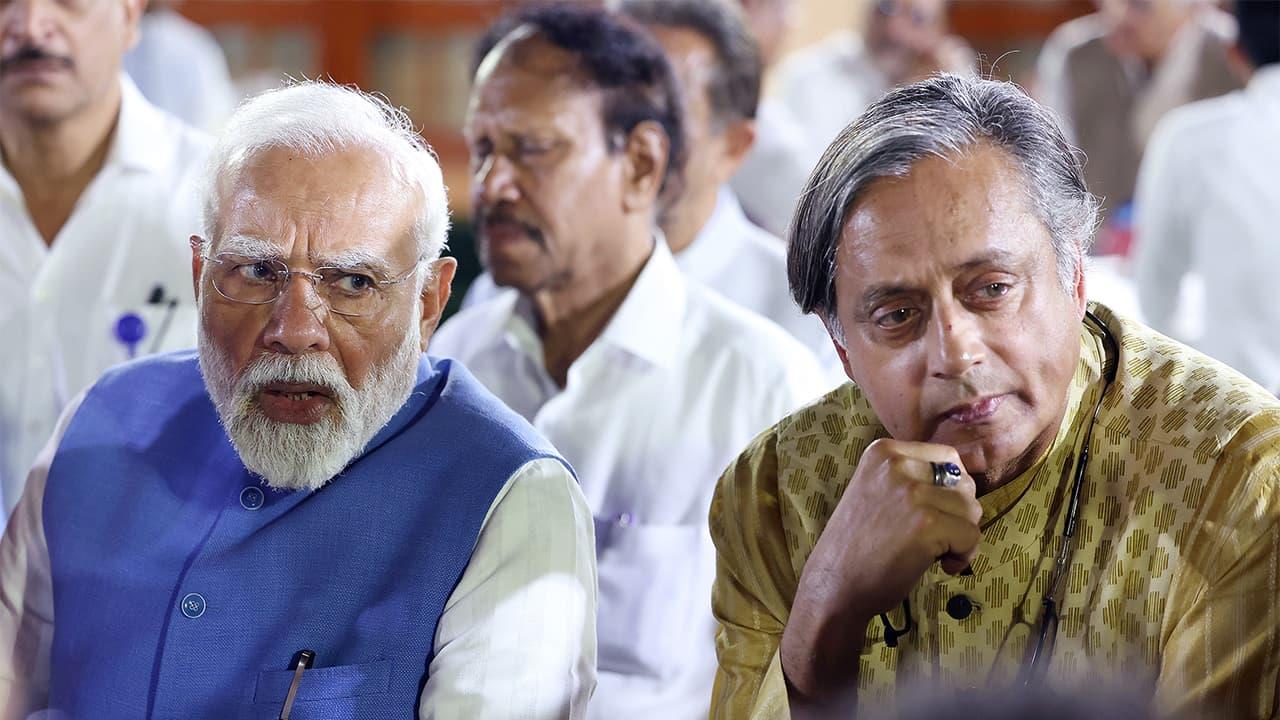
Tharoor On PM's Call To Overturn Macaulay's 'Slave Mentality' Legacy
Tharoor Details PM's Speech on X
In a post on X, Shashi Tharoor wrote, "Attended PM @narendramodi's Ramnath Goenka Lecture at the invitation of @IndianExpress last night. He spoke of India's 'constructive impatience' for development and strongly pushed for a post-colonial mindset. The PM emphasized that India is no longer just an 'emerging market' but an 'emerging model' for the world, noting its economic resilience. PM Modi said he'd been accused of being in "election mode" all the time, but he was really in "emotional mode" to redress the problems of the people." "A significant part of the speech was dedicated to overturning Macaulay's 200-year legacy of "slave mentality." PM Modi appealed for a 10-year national mission to restore pride in India's heritage, languages, and knowledge systems. I wish he had also acknowledged how Ramnath Goenka had used English to raise a voice for Indian nationalism! On the whole, the PM's address served as both an economic outlook and a cultural call to action, urging the nation to be restless for progress. Glad to have been in the audience despite battling a bad cold and cough!" the post read.
PM Modi on Shedding 'Slave Mentality'
A day earlier, Prime Minister Narendra Modi said that India's education, economy, and societal aspirations became increasingly aligned with foreign models under the influence of the British and emphasised the need to free society from any mindset of slavery. Delivering the sixth Ramnath Goenka Lecture organised by The Indian Express in New Delhi here today, PM Modi said his government is not opposed to the English language, but firmly supports Indian languages.
Noting that Ramnath Goenka was often described as being impatient -- not in a negative sense, but in a positive one - PM Modi highlighted that it was the kind of impatience that drives the highest levels of effort for change, the kind that stirs still waters into motion.
India's 'Impatience' for Progress
The Prime Minister drew a parallel, stating "today's India too is impatient--impatient to become developed, impatient to become self-reliant". He observed that the first twenty-five years of the 21st century had passed swiftly, bringing one challenge after another, yet none could halt India's momentum.
Economic Resilience Amid Global Crises
Noting that global challenges have marked the past four to five years, the Prime Minister said that in 2020, the COVID-19 pandemic disrupted economies worldwide, creating widespread uncertainty. The global supply chain was severely impacted, and the world began to drift towards despair. As conditions began to stabilise, turmoil emerged in neighbouring countries. Amid these crises, India's economy demonstrated resilience, achieving a high growth rate. (ANI)
(Except for the headline, this story has not been edited by Asianet Newsable English staff and is published from a syndicated feed.) Legal Disclaimer:
MENAFN provides the
information “as is” without warranty of any kind. We do not accept
any responsibility or liability for the accuracy, content, images,
videos, licenses, completeness, legality, or reliability of the information
contained in this article. If you have any complaints or copyright
issues related to this article, kindly contact the provider above.


















Comments
No comment